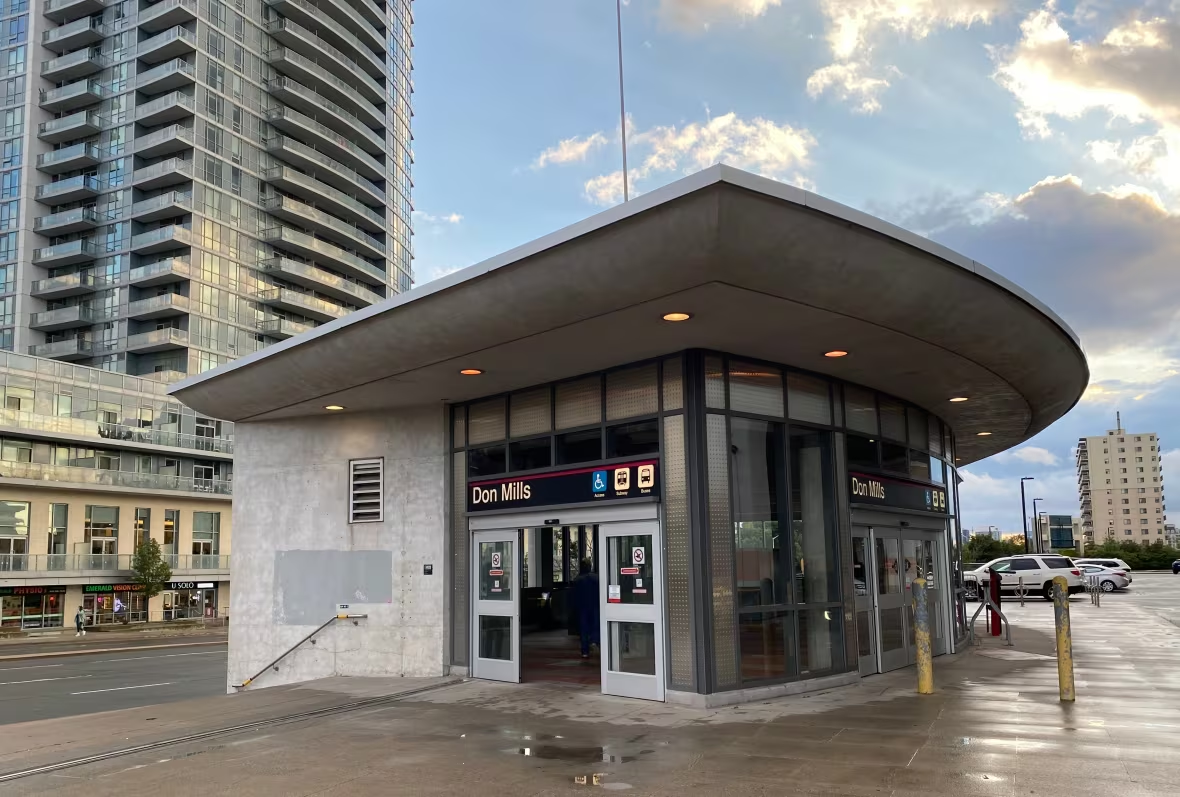TTC phasing out 'no tap' gates to cut down on fare evasion
People gaining entry illegitimately using these gates cost TTC more than $20M a year, official says
The TTC is starting to phase out "no tap" gates at subway stations because customers gaining entry this way illegitimately is costing the transit agency more than $20 million a year, an official says.
TTC spokesperson Stuart Green said the transit agency started the phase out on Monday on Line 4, also known as the Sheppard Line. Green said it's a good place to start because it's a lower traffic line so it will be easier for the TTC to manage the change there.
"What we are trying to do is close all of those gaps in our system that are allowing people to evade fare," Green said. "It's just one more way of cutting down on fare evasion that we're experiencing."
The no-tap gates, which are monitored by collectors, automatically open when customers approach them at subway stations, according to Green.
Customers who use these gates legitimately are those who do not need to pay, such as children under 12, people with a support person assistance card, and those with a paper transfer. People also use these gates when paying with cash, a TTC ticket or a token.
"People are just walking right through them without paying when they should be paying," Green said.
Going forward, collectors will open the fare gates manually for people who need to gain entry this way on Line 4, the TTC said in a post on X, formerly Twitter.
During the first step to the phase out, all other fare gates on Line 4 will be switched to "tap only" mode, the TTC said on its website. Green said the phasing out of no-tap gates across the entire subway system could take a year or two.

The TTC is undergoing a "culture change" where fare evasion will not be tolerated, according to Green. Full and partial evasion, through a myriad of ways, is costing the TTC roughly $140 million a year, he added.
"Those days are gone at the TTC," Green said. "We can't take this lightly any more."
More reliable service would help, advocate says
Cameron MacLeod is executive director of CodeRedTO, a volunteer-led transit advocacy group in the Greater Toronto and Hamilton Area. He said the phase-out is an "understandable change" given that some people are using the no-tap gates to avoid paying their fare, because the TTC has to pay its bills.
But MacLeod said longtime Toronto residents have noticed a degradation in the reliability and predictability of the transit system and that perception may be contributing to fare evasion.
"There will always be people who are not going to pay. There are those who don't care and don't want to pay. There are those who cannot pay. But there are those, sort of on the margins, the optional fare-evaders, the ones that are choosing to say: 'I don't care enough,'" MacLeod said.
"And for some of them, it could be they don't feel that the system cares about them. They don't feel that the system can be trusted and therefore it shouldn't be trusted with their money."
MacLeod said "an important part of the conversation" is the need for more frequent service and more consistent funding from higher levels of government to make service more reliable.

Maryam Ibrahimi, a TTC customer, said she supports the phase-out if people who can afford to pay fare are using the no-tap gates to evade fares.
However, affordability could be an issue for some people, she told CBC Toronto at Don Mills subway station.
"If it's people who can't afford it, then maybe we should look at the affordability prices. But if it's people just trying to take advantage of the system, obviously, I think it's a good idea," she said.
Fare evasion has an impact, transit agency says
On its website, the transit agency said fare evasion is considered illegal and could result in a $425 fine.
"The fares we collect help us limit fare increases, deliver service and maintain our system. When you don't pay your fare, you impact our ability to do this," the TTC said.
According to the TTC, fare evasion can be any of the following actions:
- Illegal entry into a subway station through a bus bay.
- Entering a fare gate without paying. This action includes pushing a gate, hopping over a gate, tailgating by walking behind someone or holding a gate open.
- Boarding a bus or streetcar without paying.
- Using a fare type for which a person does not qualify, such as child, youth, senior or post-secondary student.
The move to phase out no-tap gates comes days after the TTC announced an interim CEO. TTC board chair Jamaal Myers said last week that Greg Percy will take over from Bruce Macgregor, who was named acting CEO after Rick Leary resigned on Aug. 30.
Percy, when speaking to reporters on Friday, said his top priorities are safety and customer experience. Meanwhile, the search for a permanent CEO continues.
